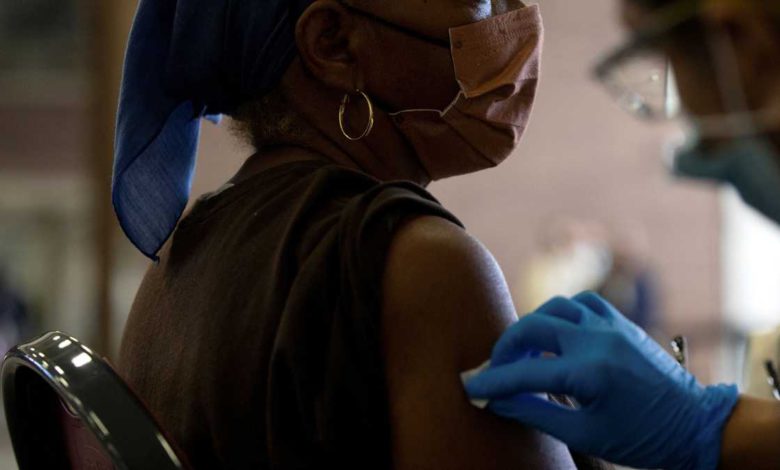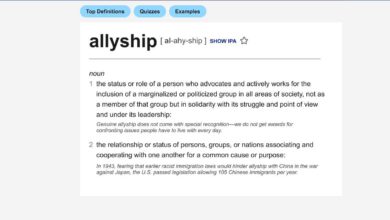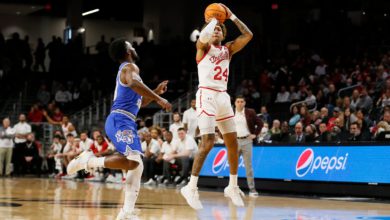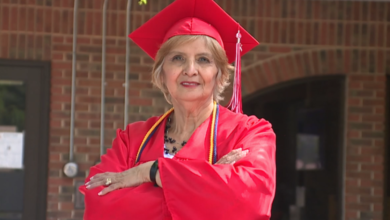
as covid 19 vaccinations remain low in parts of South sacramento. Just personally don't really believe in vaccines. Just a little bit of a conspiracy theorist, I guess community based organizations are trying their best to provide resources. As new covid cases are reported, we have seen record numbers of positive covid testing. Record numbers of community members who are not vaccinated. Sacramento's LGBT Community Center is hosting vaccination clinics every thursday at the Marsha P johnson Center. We're wanting to provide access to the vaccine, access to the flu shot, access to rapid testing, knowing your status and knowing what to do with it. Aside from covid and flu vaccinations, they're also offering testing for HIV and sexually transmitted diseases. A covid positive case among individuals who are immunocompromised could result in a potentially longer covid case. What happens for some of these immunocompromised folks is they can't really fight off this new virus that hits them and so they end up having the infection for a longer period time. In this case quite a long period time, there was evidence of viral replication going on for many, many weeks hosting the virus for a longer period of time. Even while asymptomatic could also mean an easier mutation among people who are immunocompromised. The problem is that the longer the virus is in somebody and going through this replication process, The more opportunity there is for a new mutation to occur. Experts say that some of these mutations could result in immune escape variants, which means they could be harder to trace in sacramento Marisela de la cruz KcR three News. The next clinic is coming up this thursday from noon to eight o'clock at the Marsha p johnson Center. That's at 77 25 stockton boulevard in Sacramento.
THE INFORMATION AS COVID-19 VACCIN REMAIN LOW IN PARTS OF SOUTH SACRAMENTO JUST PERSONALLY DON’T REALLY BELIEVE IN VACCINES JUST A LITTLE BIT O AF CONSPIRACY THEORIST. I GUESS COMMUNITY-BASED ORGANIZATIONS ARE TRYING THEIR BEST TO PROVIDE RESOURCES AS NEW COVID-19 CASES ARE REPORTED. WEE HAV SEEN RECORD NUMBERS OF POSITIVE COVID TESTING RECORD NUMBERS OF COMMUNITY MEMBERS WHO ARE NOT VACCINATED SACRAMENTO’S BTLG COMMUNITY CENTER IS HOSTING VACCINATION CLINICS EVERY THURSDAY AT THE MARSHA P JOHNSON CENTER. WE’RE PROVIDE ACCESS TO THE VACCINE ACCSES TO THE FLU SHOT ACCESS TO RAPID TESTING KNOWING YOUR STATUS AND KNOWING WTHA TO DO WITH IT ASIDE FROM COVID-19 FLU VACCINATIONS. THEY’RE ALL OFFERING TESTING FOR HIV AND SEXUALLY TRANSMITTED DISEASES A COVID POSITIVE CASE AMONG INDIVIDLSUA WHO ARE IMMUNOCOMPROMISED COULD RESULT IN A POTENTIALLY LONGER COVID-19 SECA WHAT HAPPENS FOR SOME OF THESE IMMUNE COMPROMISE FOLKS IS THEY CAN’T REALLY FIGHT OFF THIS NEW VIRUS THAT HITS THEM. AND SO THEY END UP, HAVING THE INFECTION FOR A LONGER PERIOD OF TIME IN THIS CASE QUITE A LONG PERIOD TIME THERE WAS EVIDENCE OF VALIR REPLICATION GOING ON FOR MANY MANY WEEKS HOSTING THE VIRUS FOR A LONGER PERIOD OF TIME EVEN WHILE ASYMPTOMATIC COULD ALSO MEAN AN EASIER MUTATION AMONG PEOPLE WHO ARE IMMUNE COMPROMISED THE PROBLEM. IS THAT THE LONGER THE VIRUS IS IN SOMEBODY AND GNGOI THROUGH THIS REPLICATION PROCESS TE MORE OPPORTUNITY. THERE IS FOR A NEW MUTATION TO OCCUR EXPERTS SAY THAT SOME OF THESE MUTATISON RESULT IN IMMUNOSCAPE VARIANTS WHICH MEANS THEYOULD C BE HARDER TO TRACE IN SACRAMENTO MARICELA DE LA CRUZ CASIO 83 NEWS. THE NEXT CLINIC IS COMING UP THIS THURSDAY FROM NOONO T 8 O’CLOCK AT THE MARCIA P JOHNSON CENTER. THAT
Immunocompromised may need a fourth COVID-19 shot, CDC says
People with certain health conditions that make them moderately or severely immunocompromised may get a fourth mRNA COVID-19 shot, according to updated guidelines from the U.S. Centers for Disease Control and Prevention.The CDC authorized a third dose or certain immunocompromised people 18 and older in August. It said a third dose, rather than a booster — the CDC makes a distinction between the two — was necessary because the immunocompromised may not have had a complete immune response from the first two doses.A study from Johns Hopkins University this summer showed that vaccinated immunocompromised people were 485 times more likely to end up in the hospital or die from COVID-19 compared to most vaccinated people. In small studies, the CDC said, fully vaccinated immunocompromised people accounted for about 44% of the breakthrough cases that required hospitalization. People who are immunocompromised are also more likely to transmit the virus to people who had close contact with them.The U.S. Food and Drug Administration has also authorized booster shots of all three available vaccines for certain people and that would include the immune compromised, the CDC says.Research showed that a booster dose enhanced the antibody response to the vaccine in certain immunocompromised people.That would make for a fourth shot at least six months after completing the third mRNA vaccine dose. At this time, the CDC does not have a recommendation about the fourth shot. People should talk to their doctors to determine if it is necessary, the CDC says.Moderately to severely immunocompromised people include those who are in active cancer treatment for cancers of the blood or for tumors, certain organ transplant and stem cell recipients, people with advanced or untreated HIV, and those who take a high-dose corticosteroids or other drugs that may suppress their immune systems. The CDC estimates about 9 million people who live in the U.S., or about 2% of the population, fall into this category.People who are immunocompromised who got the single-dose Johnson & Johnson shot should get a booster at least two months after their initial vaccine. People who choose a Moderna vaccine as a booster, even if they received a different vaccine as the first dose, should get the half-dose sized shot that was authorized as a booster for Moderna's vaccine, the CDC said.Even if they are vaccinated, the CDC recommends people with conditions that compromise their immune systems should still try to avoid crowds and poorly ventilated spaces, and should wear a mask in indoor public spaces.
People with certain health conditions that make them moderately or severely immunocompromised may get a fourth mRNA COVID-19 shot, according to updated guidelines from the U.S. Centers for Disease Control and Prevention.
The CDC authorized a third dose or certain immunocompromised people 18 and older in August. It said a third dose, rather than a booster — the CDC makes a distinction between the two — was necessary because the immunocompromised may not have had a complete immune response from the first two doses.
A study from Johns Hopkins University this summer showed that vaccinated immunocompromised people were 485 times more likely to end up in the hospital or die from COVID-19 compared to most vaccinated people. In small studies, the CDC said, fully vaccinated immunocompromised people accounted for about 44% of the breakthrough cases that required hospitalization. People who are immunocompromised are also more likely to transmit the virus to people who had close contact with them.
The U.S. Food and Drug Administration has also authorized booster shots of all three available vaccines for certain people and that would include the immune compromised, the CDC says.
Research showed that a booster dose enhanced the antibody response to the vaccine in certain immunocompromised people.
That would make for a fourth shot at least six months after completing the third mRNA vaccine dose. At this time, the CDC does not have a recommendation about the fourth shot. People should talk to their doctors to determine if it is necessary, the CDC says.
Moderately to severely immunocompromised people include those who are in active cancer treatment for cancers of the blood or for tumors, certain organ transplant and stem cell recipients, people with advanced or untreated HIV, and those who take a high-dose corticosteroids or other drugs that may suppress their immune systems. The CDC estimates about 9 million people who live in the U.S., or about 2% of the population, fall into this category.
People who are immunocompromised who got the single-dose Johnson & Johnson shot should get a booster at least two months after their initial vaccine. People who choose a Moderna vaccine as a booster, even if they received a different vaccine as the first dose, should get the half-dose sized shot that was authorized as a booster for Moderna's vaccine, the CDC said.
Even if they are vaccinated, the CDC recommends people with conditions that compromise their immune systems should still try to avoid crowds and poorly ventilated spaces, and should wear a mask in indoor public spaces.
Source link







